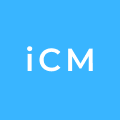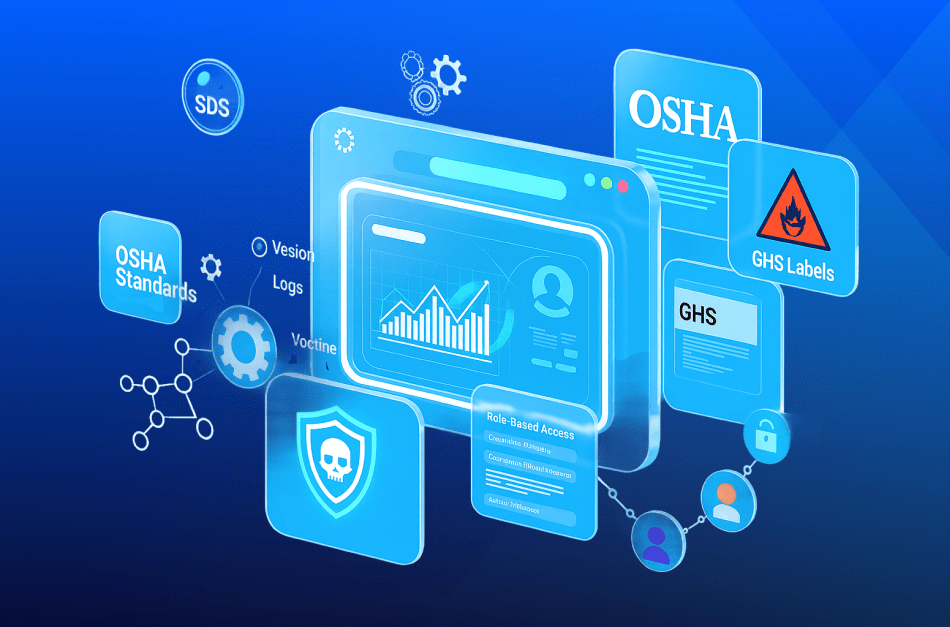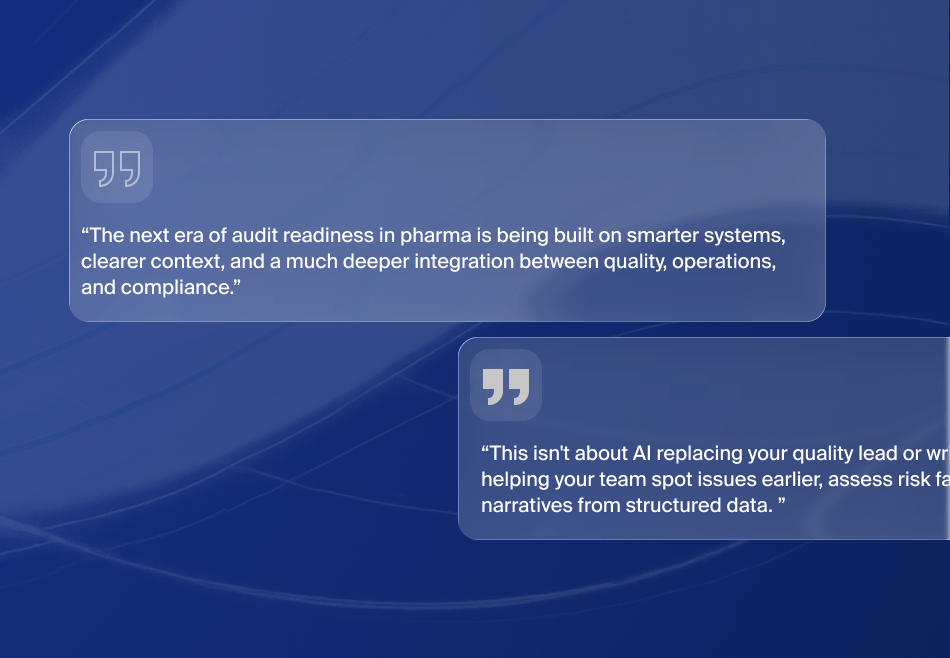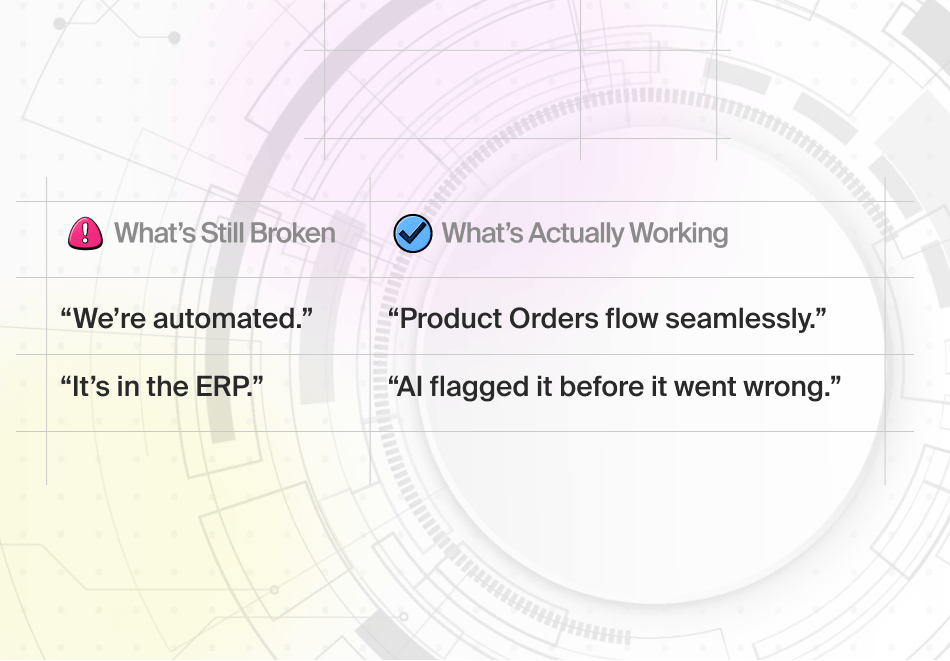At a Glance
- Disruptions brought by Industry 4.0 and digitization in the pharmaceutical sector are undeniable. Thus, pharma companies must arm themselves with state-of-the-art software solutions and tools to stay ahead in the game.
- Tracking, tracing, and serialization need the support of automated tools that can reduce manual efforts and mitigate the errors leading to stock-outs, delivery issues, and callbacks.
- Pharma companies need to be sure they comply at all times. An ERP with Pharmaceutical and Biotech centric solutions help companies meet all the regulatory requirements.
Technology has taken over our way of life and way of work. All major and minor sectors are undergoing massive changes to adapt to these changing times; the same goes for the pharmaceutical industry. Pharma companies worldwide face various challenges, such as increasing process complexities, changing consumer dynamics, healthcare reforms, a growing abundance of data without the infrastructure to leverage it, and more. These changing tides caused pharma companies to look at ERP as a panacea to solidify their IT framework and use the latest technologies (Cloud, Big Data, Automation, Artificial Intelligence, Machine Learning, Data Analytics, etc.).
However, merely adapting an ERP system will not give pharma companies value for their money.
In fact, according to a report by Gartner, by 2021, ERP cloud enterprise application implementation labor rates will increase by 60 percent due to high demand and a lack of skilled resources.
This realization indicates that, like other sectors, the pharma industry would need to invest in skill upgrading of their employees and get expert ERP consultants on board for a smooth implementation.
Now, let’s talk about the need for an ERP software system in the pharmaceutical industry in today’s time (especially as it needs an ERP that is tailor-made for the industry’s regulations and norms). Below are some of the key reasons for pharma companies to move to ERP
Manufacturing formulation and preformulation management
The drug manufacturing process comprises strict formulation and monitoring raw material ingredients and finished product yields to produce a batch. The pre-formulation stage includes defining drug production procedures, steps, quantities, etc. With a robust ERP system, such as the Microsoft Dynamics 365 ERP, pharma companies can ensure automated management of these formulations without constantly monitoring productions and worrying about manual errors.
Effective product costing
The costing of drugs involves various factors such as raw material master management, procurement cost, supply chain tracking, vendor cost management, and so forth. In a legacy system, these departments work in silos, and changes in data or any variable take time to communicate to other branches. There’s centralized access to data with an ERP system, and an interconnected network is established between various functions to develop concurrency. Well-captured data helps in efficiently defining product costs, and any changes can reflect in the system, enabling finance to accommodate those changes appropriately.
Figure 1:Benefits of ERP for Pharmaceutical Companies

Get a Consultation to Begin With Digital Transformation and the Role of ERP Systems in the Pharmaceutical Industry.
Meeting Regulatory Compliance
Regulatory compliance is a big one for all pharma companies. These regulations affect the brand name and consumer’s trust, but there is a factor of safety involved. Regulations and norms also differ regionally. It is essential to stay on top of safety and healthcare protocols to maintain global standards, and this is where a comprehensive system like Microsoft Dynamics 365 ERP can serve as a game-changer. Its flexible interface, centralized networking features, and automation solutions allow pharma companies to keep up with the changing rules and regulations and helps drug manufacturers to track these measures and stay compliant.
Pharmaceutical companies are also mandated to maintain CFR 21 Part 11 where it’s a statutory requirement to record (or document- either in print form or electronically) the steps and procedures that comprise complies with this FDA-regulated electronic signature and the production of a medicinal product. Microsoft Dynamics 365 Finance and Operations is compliant with this FDA-regulated electronic signature and electronic record.
Systematic and Efficient Inventory Management with Real-time Tracking
Effective inventory management for a smooth supply chain and avoiding stock-outs or bottlenecks are always concerns for pharmaceutical companies. This concern has reached the global level as governments worldwide are looking to manufacture or procure enough potential Covid vaccines and manage inventories so that the doses go to their population smoothly. An ERP system can help with a real-time track, trace, and serialization to manage inventory and avoid plausible glitches. An ERP system can also help accelerate product recall with its high-end traceability solutions.
Managing Variability and Predicting Scalability
Manufacturing of drugs involves managing supply chain variability, understanding its sources, and gaining a hand over release failures. Another aspect is predicting the scalability of product demand to alter manufacturing capabilities/capacities effectively. Both these involve strong communication between different functions and the use of data to preempt change. With a robust ERP for the pharmaceutical industry, companies can achieve these goals through predictive analysis, data crunching, and supply chain visibility.
Final Thoughts
Pharmaceutical companies can benefit a great deal from an effective ERP implementation. This transition leads not just to accelerated production but is a massive plus in streamlining operations and managing costs.
- A cost-effective and flexible ERP system such as Microsoft Dynamics 365 Finance and Operations enables pharmaceutical companies to take the proper steps in digitization, automation, and artificial intelligence.
- ERP system is the need of the hour, and getting expert consultants on board can help pharma companies meet their customized financial, operational, and regulatory requirements.
- Industrial dynamics are changing at lightning speed, and the pharmaceutical industry needs to keep up with these changes to stand the test of time.








